
OR
We inherited a mess. It took us time to clean up, but COVID-19 changed everything: Dr Yuba Raj Khatiwada
Published On: September 30, 2020 12:04 PM NPT By: Sagar Ghimire | @sagarghi
In his stint as the Finance Minister for two and a half years, Dr Yuba Raj Khatiwada left a mixed legacy. While some of his measures related to financial discipline have been commended, his performance on other fronts was heavily criticised across the party line. How does he evaluate his tenure as the finance minister? What will be his role as the Special Economic Advisor to Prime Minister Oli? Here are edited excerpts of Sagar Ghimire’s extensive interview with Dr Khatiwada.
What will be your role as the special economic advisor to Prime Minister Oli?
The Prime Minister has taken the portfolio of the ministry of finance. Due to multiple responsibilities attached with the ministry, it will be difficult for him to get into the details before making a decision. It also demands regular meetings and discussions with diplomatic and donor communities as well as the private sector. To make it easier for him to make various decisions and save his time for other priorities, PM Oli asked me to help him. My role now is limited to advising PM Oli on economic affairs.
Will you still be calling the shots behind the curtain? That’s the interpretation of your appointment as the special economic advisor. Is that true?
That’s not true. There is nothing like behind the curtain or in front of the curtain. All decisions would duly follow the process. Allegations like I will oversee or run the Finance Ministry from outside is completely false and baseless. I personally hold a belief that these kinds of decisions should follow due process, transparency and accountability. I will be advising the Prime Minister on policy-level economic affairs whether he will hold the portfolio or another person takes over the ministry. The advisor does not have any direct role or relations on regular and day to day functions and operations of the ministry except for discussion and briefing on some particular issues. But, the decision will be ultimately made by the Prime Minister till he holds the portfolio or another finance minister if he appoints someone. This is also a worldwide practice whereby the executive head, whether its prime minister or the president, have experts to advise them on various sectors. As ministers get occupied with administrative or regular works, they may not have time to look into details on various issues or policies. In such cases, advisors or experts with their regular research advise them and provide them their feedback. That does not mean they act as parallel to other government ministries. We also should not take it otherwise.
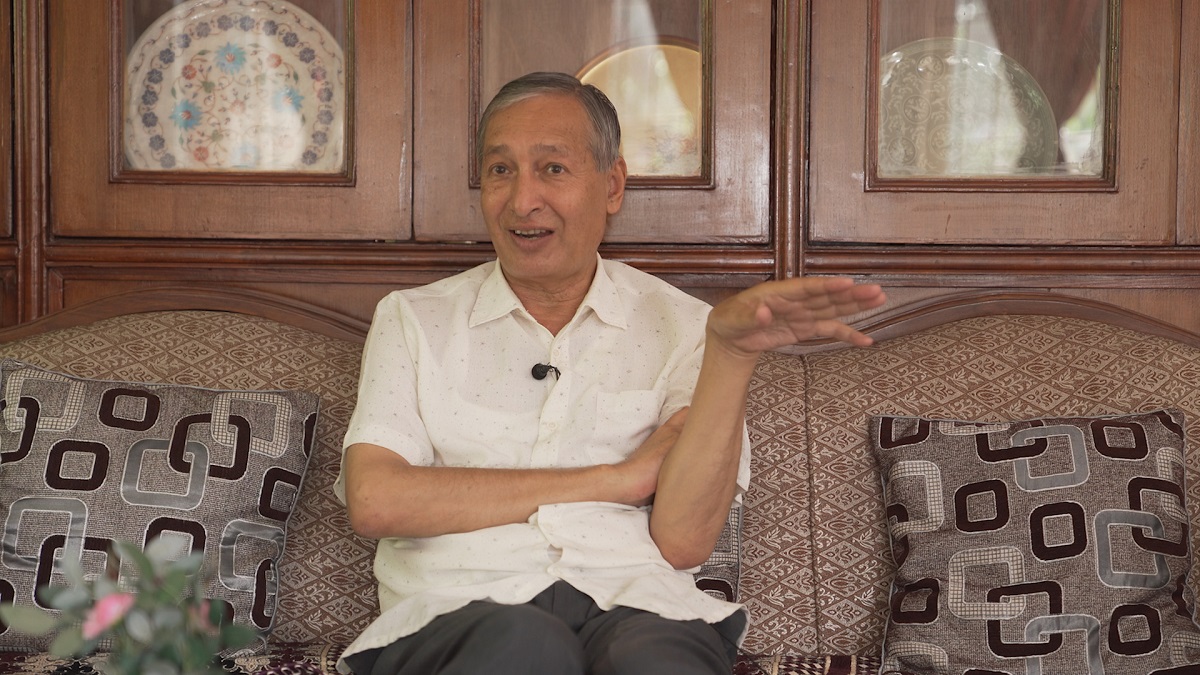
I still stand by the positions I made in the White Paper. Others should acknowledge the progress that has been made while the things that have not improved will be our agenda now.
Your appointment as the Finance Minister two and a half years ago brought great hope. But there was a huge erosion of popularity by the time you left the office.
I completely disagree with this conclusion. Rapid economic growth, economic stability, financial discipline, equitable distribution of income, social security and working toward the implementation of the fundamental rights were the expectations that the public have with us. Did I commit any mistake on these fronts? A complete transformation in two and a half years was neither a practical aspiration nor was it possible to achieve. We took over the government at a time when we were also in a political transition. As we were implementing a completely new governance system, we had only two laws then on fiscal federalism. We did not have any structure or institution for the implementation of federalism. We had to introduce new laws as required by the new constitution or revise the laws that contradict with the constitution. There were 30 to 35 laws related to fundamental rights that either needed to be drafted or amended.
Not only have we revised and drafted those laws, we have also implemented them to guarantee fundamental rights as enshrined in the new constitution. For example, compulsory and free basic education and free education up to the secondary level has been almost achieved. Access to free basic health services is gradually being ensured. Though COVID-19 has threatened the progress, we have almost achieved it. In the next two years, all Nepalis will have access to drinking water and electricity. Nearly 10 million Nepalis have already come under the social security net. We are expanding the health insurance coverage to all 77 districts. We are guaranteeing jobs through the Prime Minister Employment Program. We built nearly 100,000 houses under the Janata Awas Program and Safe Housing Program. Nearly 700,000 houses destroyed by the earthquake have been rebuilt compared to 60,000 some three years ago. Employment is something that cannot be created overnight. Though the Prime Minister Employment Program was initially criticized, it will now create jobs due to the institutionalization of the program. The economic growth of 7 percent was also increasing jobs by at least 4 to 5 percent. We had even heard about the shortage of workers in the domestic labor market. Obviously, there have been some delays in the implementation of some big-ticket infrastructure development projects. There were expectations that the NCP-led government will increase the cash hand-out or allowance to Rs 5,000 per month. We raised the elderly allowance to Rs 3,000 as well as expanding the safety net. As promised, the allowance will be increased while we will also further expand the social safety net after increasing our capacity. I did not choose for show-offs or publicity stunts. Also, the high public aspiration and expectation was also not so practical to fully meet in this short time span.
Immediately after assuming office, you unveiled the White Paper where you painted the gloomy picture of the economy. Some criticized the White Paper for your approach of ‘cherry-picking’ indicators. Two and a half years down the line, did you leave the economy in a better shape?
It is better that you media guys investigate it rather than me explaining it. As you asked, I will tell you what I had mentioned in the White Paper and what is the current scenario. In the White Paper, I had said that the economy is expanding at the pace of 6 percent, but the growth rate is difficult to sustain. The structure of economic growth is import-based and the trade deficit is widening at an alarming rate. Due to the ballooning trade deficit, there is also a huge imbalance in the payment position of the country. Failure to maintain monetary and financial discipline in some sectors has driven up inflation to a higher side. The government treasury is under pressure and is in deficit. These were the main economic indicators or the positions that I put forth through the White Paper. We maintained the growth momentum for two years while it became difficult in the third year. If there was no Covid-19, the economy would have grown by 6.5 to 7 percent. The annual inflation was below 5 percent in two years of my tenure and 6 percent this year compared to 8 to 9 percent in the last one decade before I assumed office. Before I quit as the Finance Minister, the treasury was in a surplus of Rs 16 billion. The surplus could be attributed also to the low expenditure and it could have slipped to deficit if we could have boosted expenditure. Again, it’s the data that we cannot ignore. Had the expenditures gone up, the sources and collection of revenue would have also increased or there would not have been much improvement on trade deficit. The ballooning trade deficit is not the case anymore. Even the current account deficit gradually improved to remain at the surplus by mid August. I refrain from claiming that it was solely due to my initiatives as there are also other factors that have led to this surplus. But, we should not forget that this is also a result after unnecessary outbound health, education and travel expenses, over invoicing of trade payments and under invoicing of exports also stopped during this period. The balance of payment which had slipped into deficit is now significantly in surplus after two and a half years. If we see the data, the balance of payment in mid August is at a surplus of nearly Rs 51 billion. During my tenure, the foreign exchange reserve was added by over Rs 300 billion. You will find most of the indicators positive if you see the reports of the International Monetary Fund, the World Bank, Doing Business index or other international organizations. Now, what did not improve as highlighted in the White Paper is the structure of production. I still stand by my agenda that there is a need for a complete change in the structure of production. Even if we see the construction of hydro projects, roads or manufacturing sectors, we rely on imports for either raw materials or components they need. Our economic structure or development is so import-oriented that our trade deficit widens if we pursue a rapid economic growth. That is what I had highlighted in the White Paper, and I still reiterate that conundrum. Though we have taken some initiatives as part of a self-reliant economy, transformation of the structure is a process that could take more than a decade to complete. So, we can objectively compare the current progress of fundamental economic indicators that were mentioned in the White Paper. The White Paper was not taking an aim at the government of a particular party or period. There were already two or three governments ruling the country during the period of which the White Paper had assessed the economy. I do not understand why some particular people have become so defensive on this. There was a total of Rs 800 billion in financial liabilities the government had to bear due to guaranteeing of resources for many projects without finding any source to finance them. Such financial liabilities have now gone down to less than Rs 400 billion. The upcoming finance minister will not have to worry about unnecessary financial liabilities for projects that have been initiated without finding any financing source. I still stand by the positions I made in the White Paper. Others should acknowledge the progress that has been made while the things that have not improved will be our agenda now.
Do you think that merely having positive economic indicators match the expectations of the public from you and the ‘stable’ government led by your party that commanded nearly a two-thirds majority?
Obviously, there should be evaluation of our performance as we complete nearly three years in the government. We should have done more than what we have delivered so far as the government was stable and the team was good. What we should not ignore is that the Nepal Communist Party was formed following the unification of two political parties. Though our party was unified, there were so many issues including ideologies, line of thoughts on the economic system and system of governance that needed to be settled. Our time was consumed also due to the settlement of those issues. The intra-party differences on economic perceptions and other issues also had some ripple effects in day to day operations of the government. The first year of the government which we had to call a ‘foundation year for prosperity’ was consumed by preparing, drafting or revising over 100 laws and creating various foundations for federalism. The second year was better as the economic growth remained robust. While there was some stress on the external sector of the country, the overall economic situation and performance was promising. As we entered the third year of leading the government, the intra-party disputes surfaced in the party that caused some inconveniences in operation of the government to some extent. For example, our government enjoyed a two-thirds majority, but some of the appointments are stuck for the last three years, drawing criticisms from various sectors. Despite commanding an absolute majority in the parliament, some of the laws that should have been fast-tracked are still lingering in the process even after two years of getting tabled in the house. There are limited things that the Finance Minister alone can do. Apart from delays to introduce some laws, we spent most of the time drafting and enacting many legislations related to the private sector, investment, good governance and federalism. As the foundation for the development started to widen and strengthen from lower levels after the expansion of economic activities at provincial and local units, there was a possibility of it accelerating our economic growth at a rapid pace. The COVID-19 has now become a setback for the growth momentum. The government commands nearly the two-thirds majority in the parliament. But, we also have other stakeholders including development partners while the government still needs to make efforts to enjoy support from other legal and state machineries. The public procurement related law has always been an issue with repeated amendments. The private sector’s capacity is also weak. There is enough resource for some projects and their tender process has been completed on time. Still, the projects are not completed on time. While the government deserves criticisms, other stakeholders including the private sector should also be blamed for this.
Allegations like I will oversee or run the Finance Ministry from outside is completely false and baseless. I personally hold a belief that these kinds of decisions should follow due process, transparency and accountability.
You were also in a drafting committee of the election manifesto of NCP that had promised so many ambitious projects including cross-border railway and waterway. As the government completes nearly a half of its five years tenure, the implementation of many of such big-ticket projects have not yet begun. Don’t you think those promises were lofty and unrealistic?
No, they were neither lofty nor unrealistic. We held high aspirations and ambitions. It was also a belief that the strong majority government will function without any hassles. I have an experience that obstacles do not stem from the parliament alone, but also from other sources. Due to time limitation, I would explain key four or five declarations we made in the manifesto. All Nepalis should be covered by the social safety net. While I explained some of the figures already, I would say that we are soon building nearly a half million safe homes soon and health insurance coverage in all 77 districts. Including other social security programs and the Prime Minister Employment Program, we will provide a safety net to all Nepalis in five years. Regarding health and education, I do not want to repeat it. Our campaign to provide education to all those who are outside schools and make all Nepalis literate will also be completed soon. Barring some big projects that face some problem, we will provide universal access to safe water in two years. We promised to reduce poverty. The poverty rate has been going down by 1 to 1.5 percentage points per year. Our target was to lower this by at least 2 percentage points. That would have been possible if there was no COVID-19. There is some delay in meeting that target. I will also honestly admit what we have not been able to do yet in terms of mega infrastructure projects. For example, we had said that we will achieve a certain percent progress on the East-West Railway. But, we completed a tender process of just a section which also landed into a dispute. There was difficulty in finding the financial resource for the project as foreign investors do not want to finance it on lending or BOOT models if we implement it on our own. Due to technological differences, we could not start building it from the support of our neighbors. We have lagged in terms of progress on building the railway. In terms of waterways, we are also lagging behind. With financial resources already guaranteed, we are upgrading and expanding the East-West Highway to six lanes. However, some local disputes have delayed its progress. We have operated Rasuwagadhi customs point after it became difficult to resume Tatopani customs point due to the earthquake. We have already started work to upgrade the Rasuwagadhi customs point. For projects financed by the development partners, our insistence alone does not help. The Upper Tamakoshi Hydropower Project was scheduled to be connected to the national grid in the same year we were in the government. Even in the third year, it is yet to come into operation. Our target to reach 5,000 MW electricity in five years looks attainable. Load shedding has already ended. Now you may ask whether the people have realized these progress and become happier compared to the past. The Multiple Indicator Cluster Survey (MICS) report last year showed that two-third Nepalis are happy while a similar number of surveyed people said that they are better-off than earlier. This is a positive sign.There might be some frustrations among the people in the wake of COVID-19. Despite all these progresses, there could be feelings that the two-thirds majority government should have done better to leave a mark on the people and offer them better governance. The expectation is that they should not hear a single case of corruption. But, they had to. Some of the cases that were long brushed under the carpet were exposed after the investigation of the present government as part of a cleaning initiative. In some cases, the cleaner could have got smeared while cleaning the carpet. There might be some sporadic cases and we have to move ahead by becoming stricter and more accountable while combating them. The criticism should encourage us to perform better in the days to come.
There is a misconception among other ministries that the budget implementation is solely the responsibility of the Finance Ministry.
While some of your policies were praised by the opposition leaders, you often were at the center of disputes between the leaders of your party. How much such disputes affected your delivery and performance?
I am also a central committee member of the Nepal Communist Party. I should also look into the issues that have led to disputes, concerns, criticism and worries in the party. They were not going to have an impact on my pace, performance and decision-making process. But, it had an impact on the process of rapid economic reforms to establish Nepal as more attractive investment destinations for foreigners and further strengthen Nepal’s economic relations with the world due to intra-party ideological differences on these issues. This was something that also got reflected in the Millennium Challenge Corporation (MCC) Compact. Whether on mobilizing foreign assistance or private sector partnership or the extent of the state’s role, there would be some disagreements within the party. This caused some delay. But, I am satisfied that such differences did not adversely impact or influence my decision-making process. I feel that I could have done some of the things quickly if there was uniformity in the understanding in the party.
Critics in your party fiercely criticized you for insisting on accepting the MCC Compact while others accused you of not defending the largest US grant. There are also issues related with the Belt and Road Initiative (BRI). Where do you stand on MCC and BRI?
There is no need to either exaggerate or eulogize any initiative. Financial assistance is a part of international relations. The support from the US is a grant whereas the Chinese-led BRI offers largely loan assistance with a small portion as grant. Countries who provide assistance have their own interests. We should not harbour any illusion in this regard. We should accept the foreign assistance that does not jeopardize our national interest and self-dignity. If it is in line with our national priorities and interest, such assistance should be welcomed irrespective of their agenda. This applies also with the MCC. The MCC Compact is not the project that started after the NCP rose to power. Almost all parties and their governments as well those colleagues, who are now heavily criticizing us, are also directly or indirectly involved in the process of developing the MCC Compact.
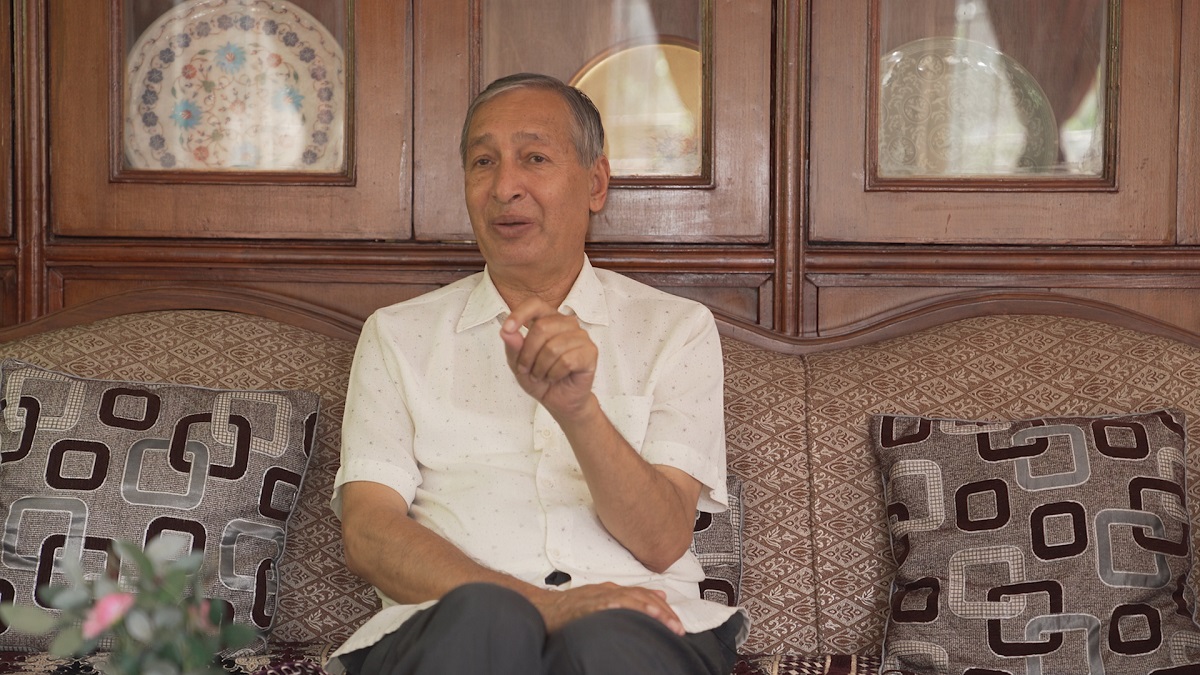
We have written to MCC for clarifications on some issues and they are also responding to our letter. The MCC Compact will move ahead after clarifications on those issues.
Both extreme arguments that there is no shortcoming in the MCC Compact or it is anti-national are exaggeration and impractical. From these extreme opposing positions, you have to understand that the then Finance Minister had taken a balanced approach on the MCC Compact.
For six months after being appointed as the Finance Minister, I took the stance that the Compact like other agreements for foreign assistance does not need a ratification. When they said that it is in the notification of their parliament and the $500-million cannot be provided without the ratification of Nepal’s parliament, I sent it to the parliament for ratification following consultations with the Law Ministry which also advised us to approve it from the parliament as some clauses in the agreement contradict with our existing laws during the implementation of the Compact. Another criticism I faced was for signing project implementation agreement before the ratification of the MCC Compact. With an assumption that the parliament would ratify the MCC Compact for which all parties as well as the main opposition party support the MCC Compact, we had to sign the project agreement. Since we have to immediately execute the Compact after the ratification, I sign the project implementation agreement as part of the Compact so that we are ready to execute the project from the next day it gets approved by the parliament. We have also written to MCC for clarifications on some issues and they are also responding to our letter. I think the MCC Compact will move ahead after clarifications on those issues. Regarding BRI, we were planning to start the projects after signing the agreements from 2020. However, due to the COVID-19 that started to hit China from January, all these processes have stalled. Whether it's for MCC Compact or the BRI, we accept them to support our national interests, priorities and strategies. While accepting international assistance, we also have to consider our balanced foreign relation policies. If we do not pursue balanced foreign policies, we risk sometimes getting entangled in unnecessary disputes.
You got a rare opportunity of presenting the government budget for consecutive three fiscal years. While your budgets largely received positive responses, the last two budgets could not be fully implemented. Why?
Since the Finance Minister presents the budget, expectations that he should be responsible for its full implementations are justifiable. While the Finance Minister should be involved in monitoring the budget implementation and delivering results, it's the line ministry which takes decisions and carries out contracts of the projects included in the budget. In this regard, the minister and the ministry he is leading is responsible and accountable for the implementation of the budget. How much responsibility we have fulfilled or we will fulfill should always remain a matter of evaluation. How much priority each minister accorded on the implementation of the budget for his or her ministry and how much time we spent on small political and administrative affairs? This should be the matter of evaluation. There is a misconception among other ministries that the budget implementation is solely the responsibility of the FInance Ministry. Asking more budget every year while freezing the allocated budget to the ministry has always been a problem.
Each minister should devote his or her full time on implementing development projects and carry out administrative works of the ministry. There is also a lack of inter-agency or inter-ministry coordination. We should further simplify the laws related to forest clearance, public procurement and the process of getting approval from the Finance Ministry to make sure that the budget implementation process does not get entangled for a long time.
As we have just entered into federalism, there are still a lot of confusions on implementation of development projects. We send some projects to provinces and local levels while they send it back to us, citing that they cannot implement them. As the process is getting smooth, we were able to increase some progress in the third year. Still, I see a need for huge efforts to execute the budget.
Setbacks from the COVID-19 aside, we have created an environment for doing the business in the country by addressing all major problems of the private sector.
Some economists argue that the two-thirds majority government did not take bold reform initiative to mark a policy departure in the economy.
Liberal economists would say that I did not carry out reforms on liberalization whereas socialists would say that I did not undertake any reforms for the state-controlled economy. We are largely in between these two opposing schools of thoughts. We have to pave the way toward socialism. What reforms are needed for that? Implementation of fundamental rights, modernization of businesses, supporting small and micro enterprises and promoting entrepreneurship, providing social safety net and prioritizing education and health sectors are the areas where we have to work on. A section of critics would say we have to nationalize lands where others say we have to allow people to own lands as personal property. Between these two poles, we found a compromise to set up a land bank. We have not only drafted but implemented many crucial laws like Industrial Enterprises Act, The Foreign Investment and Technology Transfer Act, Financial Responsibility Act, tax related acts and many other financial and economic sector legislations that were languishing in the process for more than 20 years. The implementation of these crucial laws marks a radical policy departure in our economy. Who dared to scrap the controversial Tax Settlement Commission? Isn't implementation of Permanent Account Number requirement and Vehicle and Consignment Tracking System bold reform initiatives?
The budgetary support that has gone up in recent years from the World Bank, the Asian Development Bank and the International Monetary Fund, European Union and other development partners was due to our progress and commitment for the reform initiatives. As I left the Finance Ministry, we received Rs 168 billion in cash support. Was that support possible without the reforms from the Finance Minister? I carried out reform where it was due, but avoided any work just for the sake of cheap popularity. There are some who believe that we should go for radical reforms that neither our constitution nor our economic structure allow. Our constitution guides us and our works toward building the socialism-oriented economy and the welfare state.
You will find most of the indicators positive if you see the reports of the International Monetary Fund, the World Bank, Doing Business index or other international organizations.
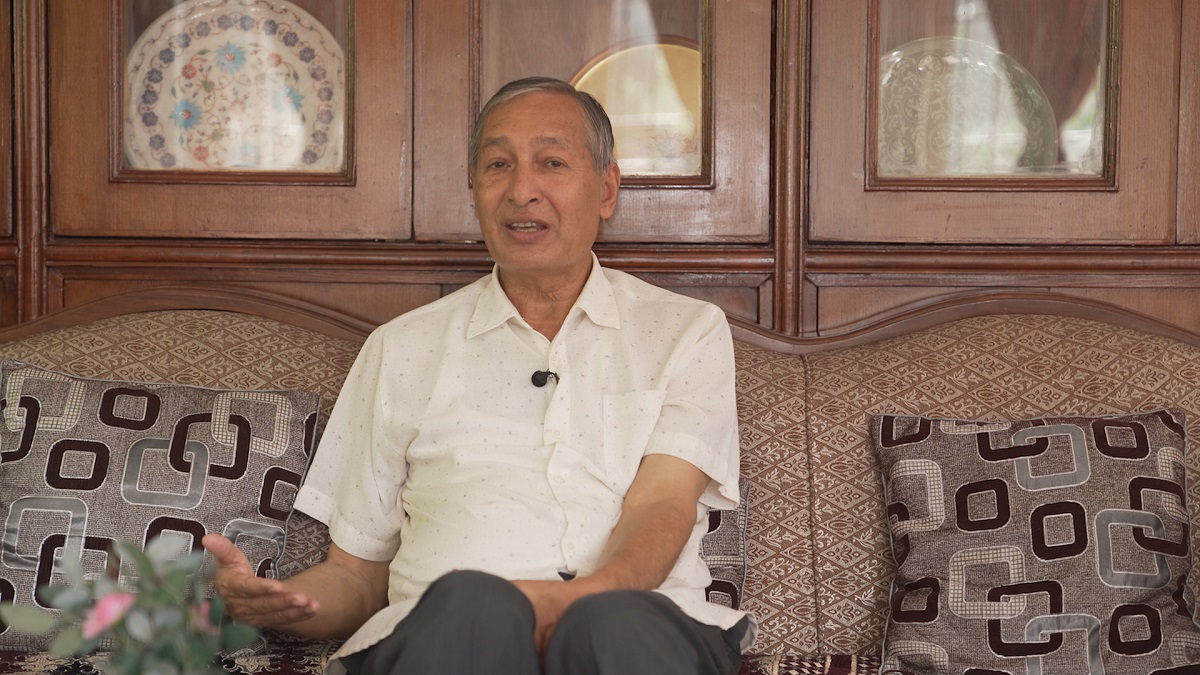
A section of the private sector accuses you of acting as the top regulator rather than the facilitator
There is a private sector which seeks competition, transparency and predictable tax regime and stable government to run their businesses. There is a small section that wants political patronage to make quick profits. They try to avoid a competitive market and want the state protection to expand their business dominance.
There is investigation on multiple cases of fake invoicing for imports worth billions of rupees. Curbing such illegal practices is not about being popular, but setting up a fair and legal system in the country.
It’s obvious for them to get miffed from my approach. There might be a perception that I should not antagonize such people as I have to do politics and I need to count them for my support. Valid suggestions and criticisms must be listened to. Things that promote anomalies in the market should never be entertained. That’s my objective.
The institutional relations with the private sector have remained cordial. Our partnership with the private sector’s umbrella organizations like the FNCCI flourished. Those who believe in good business practices are satisfied with me as they have got an opportunity for competitive practices and a level playing field. Dozens of private sector friendly laws and regulations have been implemented. We have created a positive environment for foreign investment and held the investment summit which resulted in over Rs 1,400 billion of investment pledges. Nearly Rs 200 billion of such investment is already in the process of realization. Exorbitant bank interest rates, power shortage and labor disputes were the long-standing three major complaints of the private sector. Now there is no high borrowing cost due to interest rates stability. Except for an issue over a dedicated feeder line for supply of electricity which is going to be resolved soon, power shortage is not a problem anymore. The implementation of a contribution-based social security system has addressed the labor issues of the private sector. There was no labor strike in the last two and a half years. Setbacks from the COVID-19 aside, we have created an environment for doing the business in the country by addressing all major problems of the private sector. We provided protection to some domestic industries which could have irked some big traders. Even protection to one industry would cause inconvenience to another industry. That’s the challenge also for the upcoming Finance Minister. Overall, the collaboration with the private sector remained good and I am thankful to them.
When we opted for gradual reopening, there were again criticisms that the government prematurely lifted lockdown and increased health risks to collect revenues. No matter what the government would do, there was no appreciation.
The government failed to provide enough relief measures to address the adverse impacts of the pandemic faced by the private sector whose businesses were battered by the lockdown. Why?
At a time when the infection rate was rising in India at an alarming rate, the Prime Minister took a bold step to close the border. Had the government not restricted the free movement of the people, the situation now could have been scary. Still, we did not stop the flow of goods and commodities which led to normality in the supplies. Even donor agencies were ready to distribute cash handouts assuming that this situation could last for one or two months. After deeper analysis, the conclusion was that the pandemic might stay here for a long time and there was no point to rush to transfer cash. We were for distributing food for those who have lost their livelihoods, not cash. Even when we were saying that we should not distribute cash, we channelized the reliefs through local units. Nearly one million received the relief. We tried to link those people who lost their jobs with the labor market. The best relief is to link them with the labor market. Distribution of cash and food is never going to be enough.
We have provided a waiver of interest rates on loans by two percentage points. The working capital loans have been made cheaper. We have been operating the refinance fund while another fund to provide concessional financing to businesses battered by coronavirus is all set to be implemented. We have provided waiver on electricity tariffs. The government deposited social security contributions for firms and organizations enrolled in the Social Security Fund. We also introduced a policy where employers could defer 50 percent of salary payment. For distribution of more reliefs, we also have money in our treasury. Our revenue was not even enough to meet our expenditures and we were raising the domestic debt. We were using the budget support for the relief. As we were also losing the capacity to support businesses and people hit by coronavirus, we thought of resuming the economic activities gradually and providing them relief. When we opted for gradual reopening, there were again criticisms that the government prematurely lifted lockdown and increased health risks to collect revenues. No matter what the government would do, there was no appreciation.
As the relief alone is not sufficient, gradual resumption of the economy is the best strategy that the government has now pursued. Linking people with work by embracing health safety measures, giving continuity to businesses, providing cheaper capital, giving permits to bring foreign skilled workers if not available in the domestic market, strengthening health infrastructures and the implementation of the budget has been the strategy now. Only after we distribute the poverty identity card or national identity card, cash transfer will be easier and effective. Such a system is also needed for cash handouts for other disasters or economic crises.
You May Like This
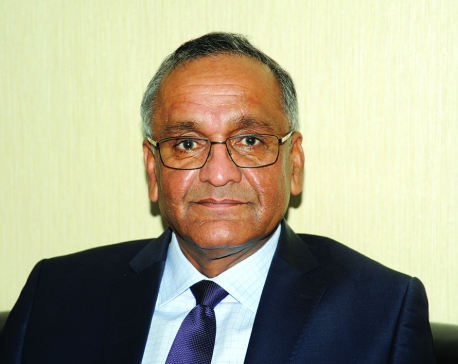
We need to move toward resolution of Kashmir dispute, not away from it: Mazhar Javed
Nepal established diplomatic relations with Pakistan in 1960 and ever since the two countries have enjoyed cordial relations based on... Read More...
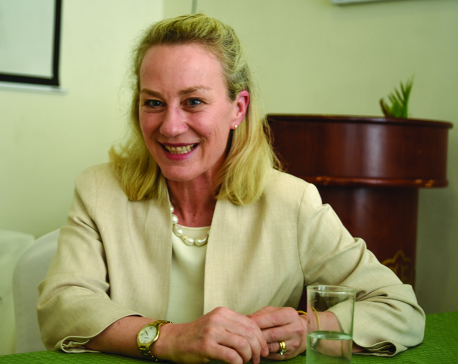
'America has always stepped up to support Nepal. That's going to continue'
Alice G Wells is the Principal Deputy Assistant Secretary at the Bureau of South and Central Asian Affairs of the... Read More...
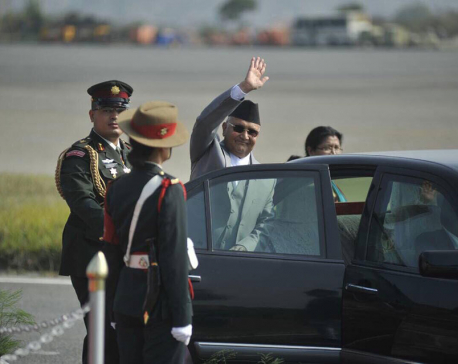
What Nepal needs is India's friendship and support for growth: Nepal PM Oli
In an exclusive interview to The Hindu, Mr. Oli says the bitterness of past relations have been put behind them,... Read More...


Just In
- Sunkoshi-Marin Diversion Project’s tunnel construction nears completion, breakthrough scheduled for May 8
- Govt tightens security arrangement for Third Investment Summit 2024
- Pesticide residue found in vegetables in Nepalgunj
- Aam Janata Party and Samajwadi Jana Ekata Party merge
- 1,600 participants confirmed for Nepal Investment Summit
- Ilam-2 by-elections held peacefully, vote count likely to start tonight
- NEA schedules five-day power cut across Kathmandu Valley for underground cable installation
- Hundreds of passengers including foreign tourists in distress as poor visibility halts flights to and from PRIA



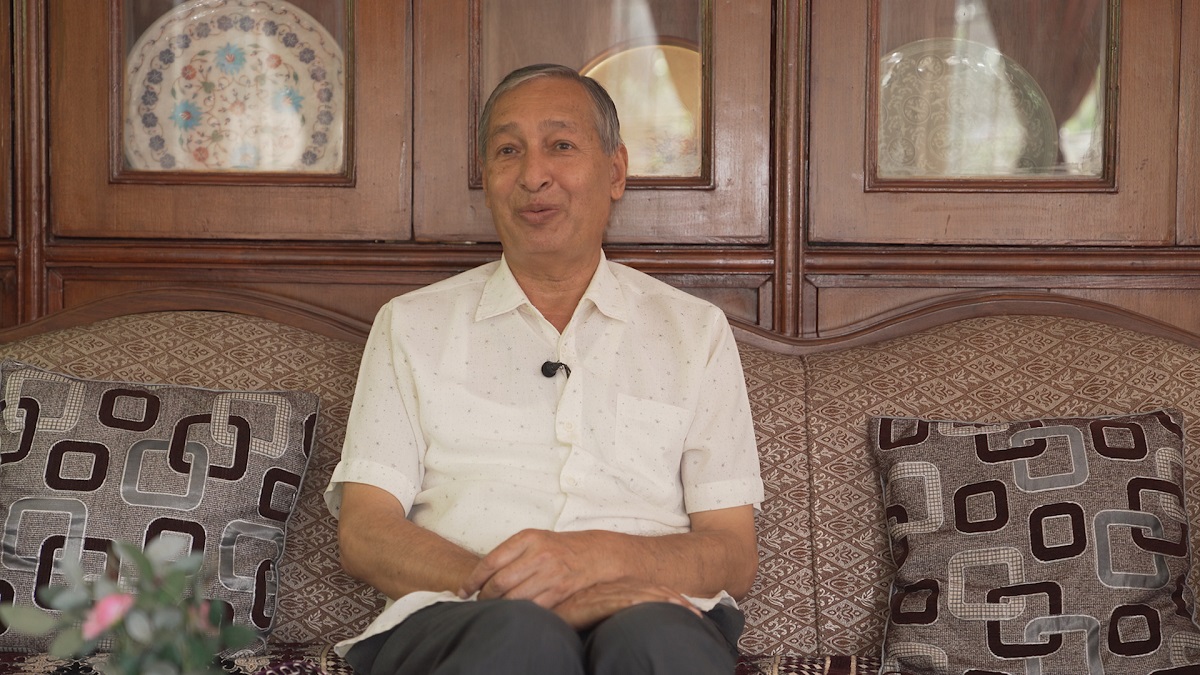




-1200x560-wm_20240427144118.jpg)




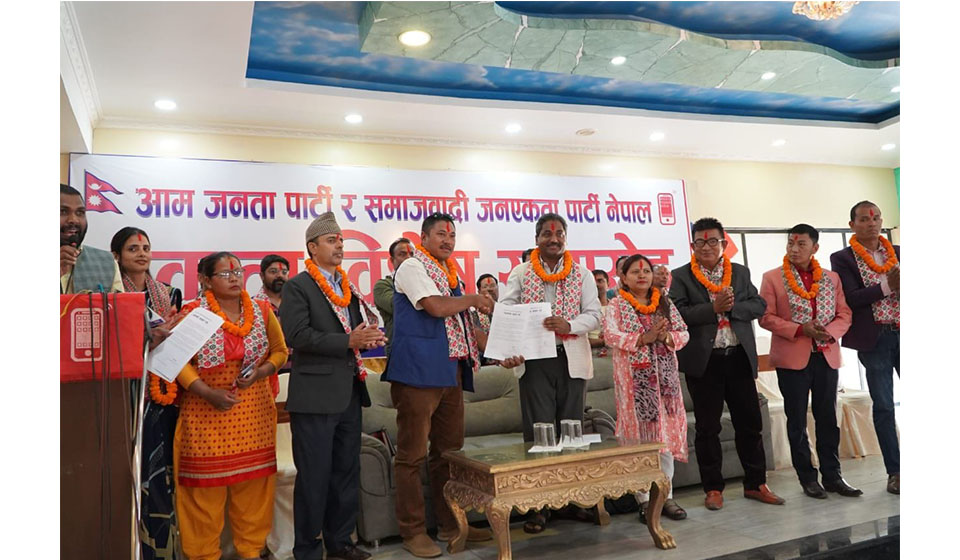

Leave A Comment